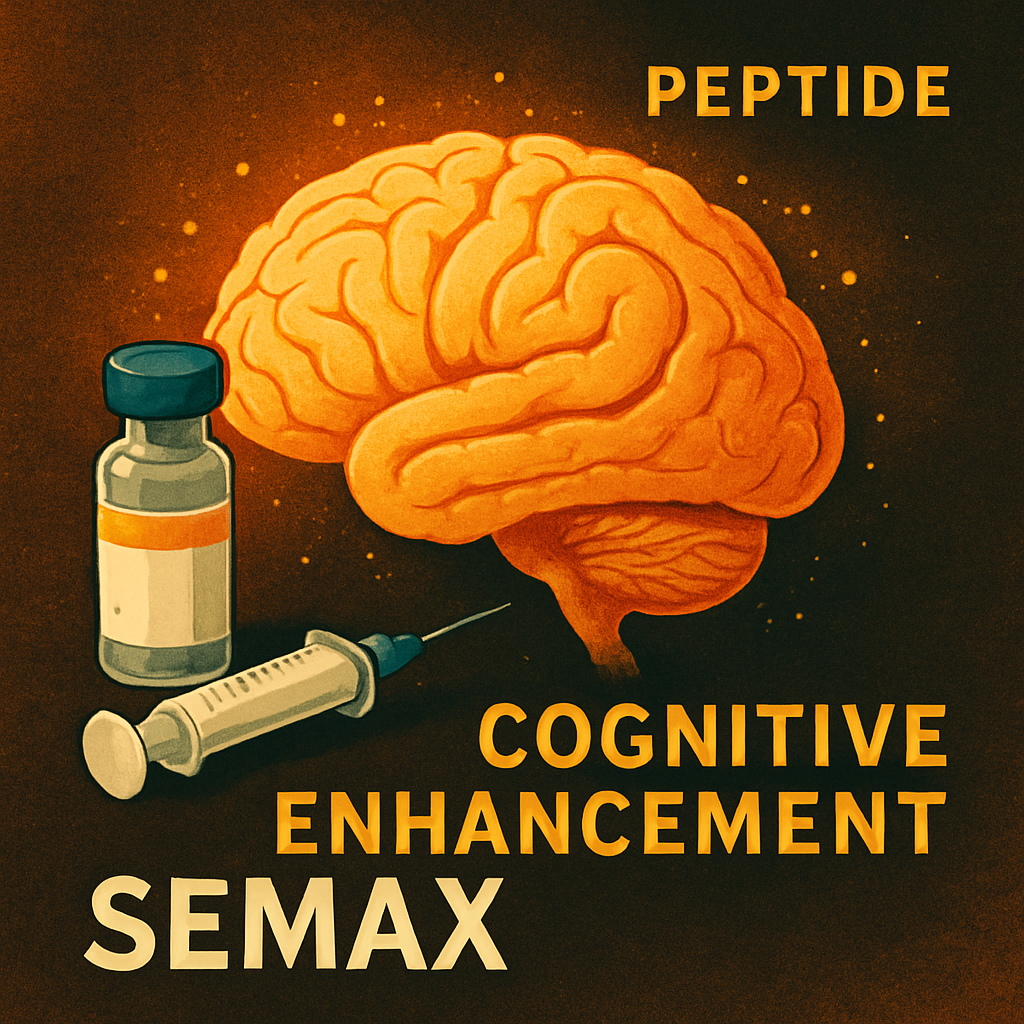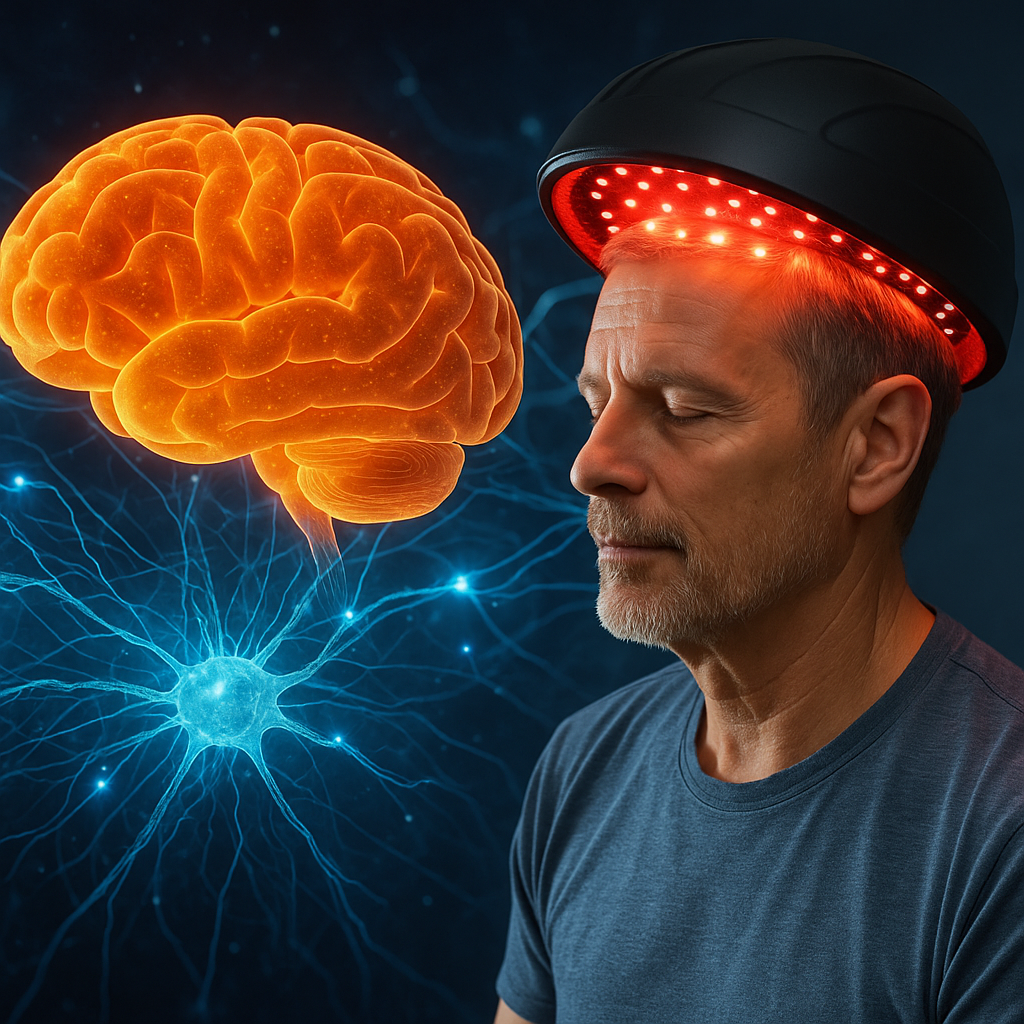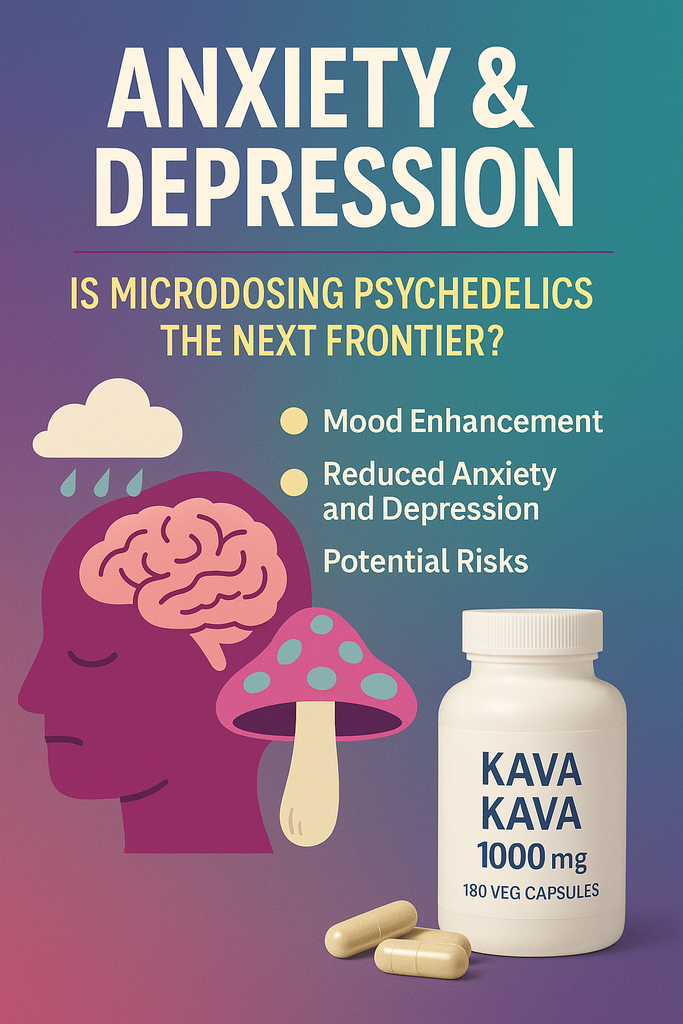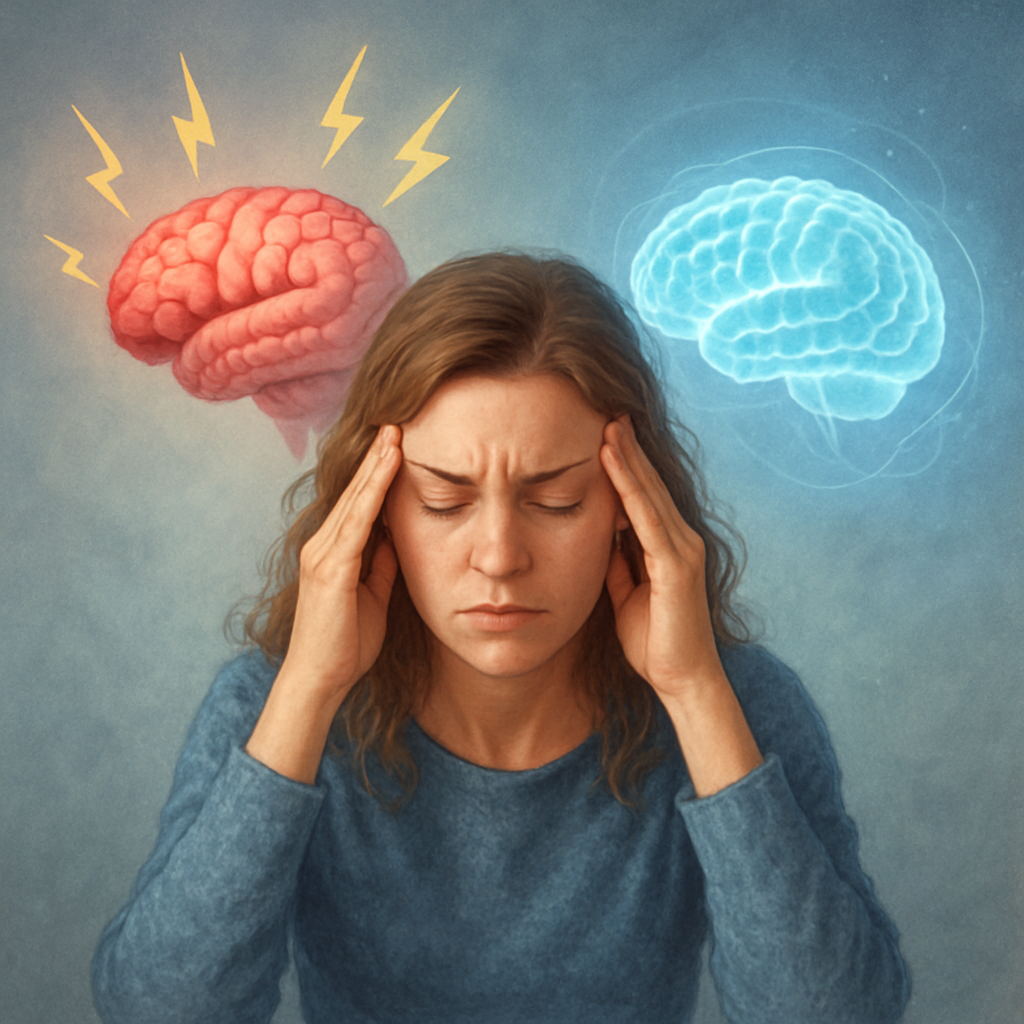News — neuroplasticity
Semax: The Powerful Peptide Nootropic for Cognitive Enhancement & Brain Health
BDNF brain booster brain health cognitive enhancement dopamine focus enhancer memory supplement mental clarity neuroplasticity neuroprotection nootropics Russian nootropics Semax Semax benefits Semax dosage Semax for focus Semax nasal spray Semax peptide Semax side effects smart drugs
In the expanding world of nootropics, few substances have captured attention quite like Semax. Originally developed in Russia for medical applications, this synthetic peptide has evolved into a favorite among cognitive enhancement enthusiasts. With a growing body of research supporting its benefits, Semax is no longer just a curiosity from the East—it’s becoming a mainstay in the toolkit of biohackers, students, professionals, and anyone looking to sharpen their mental edge.
What sets Semax apart is its unique mechanism of action. Unlike many cognitive enhancers that rely on traditional stimulants or neurotransmitter modulation, Semax works on a deeper level—impacting the brain’s response to stress, increasing BDNF (brain-derived neurotrophic factor), and promoting neuroplasticity. These features make it a promising supplement not only for boosting focus and memory but also for long-term brain health. If you're searching for an edge in productivity, creativity, or mental stamina, Semax might just be the peptide worth exploring.
How Photobiomodulation Therapy Supports Neurorehabilitation
ATP production brain healing brain inflammation brain injury recovery cognitive recovery light therapy brain LLLT low-level laser therapy mitochondrial healing neurodegenerative disease neuroplasticity neurorehabilitation neurotherapy PBM safety PBM therapy photobiomodulation red light therapy stroke rehabilitation transcranial laser therapy traumatic brain injury
Advances in neurological rehabilitation have taken a promising turn with the growing integration of light-based therapies, particularly photobiomodulation (PBM), also known as low-level laser therapy (LLLT). This non-invasive approach uses specific wavelengths of light to stimulate cellular repair, reduce inflammation, and enhance neuroplasticity—making it a novel tool in the recovery process for those with brain injuries, neurodegenerative diseases, and other neurological conditions.
By harnessing the power of red and near-infrared light, PBM can penetrate the skull and deliver energy directly to neurons and glial cells. Unlike surgical or pharmaceutical interventions, PBM works by modulating mitochondrial activity and cellular signaling pathways, facilitating a wide range of therapeutic outcomes. This article explores how photobiomodulation is transforming the landscape of neurorehabilitation, what the research says, and how it can be applied in clinical and home settings.
Microdosing Psychedelics for Anxiety & Depression: Breakthrough or Buzz?
alternative mental health anxiety support depression treatment holistic healing kava kava legal psychedelics LSD microdose mental health innovation microdosing microdosing benefits microdosing research mood enhancement natural anxiety remedies neuroplasticity plant medicine psilocybin psychedelic therapy psychedelics sub-perceptual dosing
Anxiety and depression have become defining mental health challenges of the modern age. Affecting over 300 million people globally, these conditions are not only deeply personal but also represent a significant burden on public health systems. While therapy and pharmacological interventions like SSRIs and benzodiazepines remain mainstream treatments, many patients still report side effects or limited relief, prompting a surge of interest in alternative, cutting-edge approaches.
Enter microdosing psychedelics—a novel and controversial strategy that’s making waves in both the scientific community and popular culture. Unlike traditional psychedelic use, which involves full doses to induce hallucinations, microdosing refers to consuming sub-perceptual amounts of substances like LSD or psilocybin. The goal isn’t to "trip" but to subtly enhance mood, creativity, focus, and emotional resilience. As research expands and public curiosity grows, the question becomes: can this emerging practice offer real hope to those battling anxiety and depression?
The Role of Sleep in Cognitive Function: Memory, Focus, and Brain Health
brain detox brain fog cognitive function deep sleep emotional balance melatonin supplement memory consolidation mental clarity natural sleep support neuroplasticity nighttime routine REM sleep sleep and brain health sleep and learning sleep and memory sleep and productivity sleep cycles sleep deprivation sleep focus sleep hygiene
Sleep isn't just about rest—it's one of the most powerful tools your brain has for staying sharp, focused, and emotionally resilient. While we sleep, the brain doesn't shut off; it goes into overdrive, processing memories, clearing toxins, and recharging the mental batteries that fuel our daily lives. In fact, consistent quality sleep is as essential to brain health as oxygen and nutrients.
In today’s always-on culture, sleep often takes a backseat to deadlines, entertainment, and stress. But research shows that sacrificing sleep can quickly lead to forgetfulness, poor focus, mental fatigue, and even long-term neurodegenerative conditions. This article explores how sleep impacts memory, concentration, decision-making, emotional balance, and overall brain health—providing the science and solutions behind better cognitive performance through sleep.
How Stress Affects the Brain and Your Mental Health
adaptogens amygdala and fear anxiety BDNF brain fog brain supplements chronic stress cortisol cortisol balance depression and stress hippocampus shrinkage LongLifeNutri memory and stress mental health neuroplasticity stress and the brain stress recovery stress relief remedies stress relief supplements stress symptoms
Stress is an unavoidable part of modern life — but when it becomes chronic, it can wreak havoc on your brain and emotional well-being. While a certain amount of stress can motivate you and sharpen focus, too much for too long triggers chemical changes in the brain that affect memory, mood, and even your physical health. The result? You may feel anxious, forgetful, irritable, or overwhelmed — and that’s just the beginning.
Understanding how stress affects the brain is crucial for protecting your mental health. The brain-body connection is real, and stress doesn’t just live in your mind — it shapes how your brain functions on a structural and hormonal level. In this article, we’ll explore the neurological impact of stress, the symptoms it can cause, and actionable ways to manage it before it takes a toll on your mental wellness.





